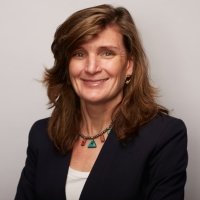Women Behind the Scenes: How Modernity is Catching on Before Law in the United Arab Emirates
On February 3, 2017 the Women in Public Service Project and Middle East Program hosted a panel discussion on “Women Behind the Scenes: How Modernity is Catching on Before Law in the United Arab Emirates” with Her Excellency Sheikha Lubna Al-Qasimi, the Minister of State for Tolerance of the UAE, and Kent Davis-Packard, Adjunct Professor, Middle East Studies and American Foreign Policy Programs, the Paul H. Nitze School of Advanced International Studies, Johns Hopkins University. Gwen K. Young, Director of the Global Women’s Leadership Initiative and the Women in Public Service Project at the Woodrow Wilson Center, provided opening remarks. Young opened the event by pointing out the mission of the Women in Public Service Project is ensuring a world where half of the world’s public service leadership positions are held by women by 2050, and thanked the UAE Embassy in Washington, D.C. for their sponsorship of the Women in Public Service Project.
Minister Al-Qasimi summarized Emirati women’s achievements in areas such as literacy and education. She also described women’s opportunities to demonstrate their successes within different sectors of the workforce as a result of policy and cultural changes in the UAE. On the policy level, the Minister laid out the UAE government’s priorities in ensuring women’s participation on all levels of public life as well as the representation of youth in policy decision-making. On the societal level, Al-Qasimi emphasized the importance of culture, rather than religious beliefs exclusively, in shaping gender norms and women’s lives. While shari’a structures society at large and informs Emirati societal culture, Al-Qasimi argued, Emirati families see an invaluable benefit in educating their daughters. This has led Emirati women’s literacy and educational enrollment rates to rise beyond average global levels. She further explained that while Emirati women can individually choose whether to join the workforce, most women see it as an economic imperative to co-provide for their families. Ultimately, Al-Qasimi sees the role of the government as offering leadership by example and as providing opportunities to women to rise to their full potential. Emphasizing the achievements of her country, Al-Qasimi pointed at cultural differences between Arab countries and even within the UAE to explain remaining gaps in gender equality throughout the region. Moreover, she referred to democratic governance as a determining factor for equal representation, and she mentioned cultural change “at every country’s own pace and not imposed by someone else” as central to women’s successful empowerment.
Davis-Packard summarized her field research in the UAE in 2016. Based on her interviews with women in the country’s public and private sectors, she described her observations of a discrepancy between the reality of many women’s lives and formal laws. She referred to the practical insignificance of the male guardianship system as an example for what she describes as a “relaxation of traditional rules and norms.” Acknowledging the work the UAE government has undertaken to reach greater gender equality in both the public and private sectors, Davis-Packard described the government’s approach as top-down policies to steadily empower women. Her research shows that the motivation behind this approach is mainly economic—the UAE seeks to capitalize on the productive resources of 50 percent of its population. Moreover, her research also found a changing belief in gender equity across large segments of society. While gaps and challenges remain, Davis-Packard concluded that cultural change does not necessarily have to be tied to comprehensive legal reforms.
In the question and answer portion of the event, the panelists were asked about the impediments that Emirati women encountered in the past and continue to encounter today. Al-Qasimi mentioned different examples of societal pushbacks that women in leadership, including herself, have experienced. She explained that some of these pushbacks have been partially overcome as the result of a gradual normalization process in which positive outcomes of female empowerment are visible. Davis-Packard further pointed at the gap between the public and private sectors, noting that while relatively greater progress has been made in the former, more significant challenges for women still remain in the latter.
By Selin Aksoy, Middle East Program
Cover Photo: Flickr - Jake Brewer (CC BY-NC-ND 2.0)
Speakers

Hosted By

Global Women's Leadership Initiative
The Global Women’s Leadership Initiative has hosted the Women in Public Service Project at the Wilson Center since June, 2012. The Women in Public Service Project will accelerate global progress towards women’s equal participation in policy and political leadership to create more dynamic and inclusive institutions that leverage the full potential of the world’s population to change the way global solutions are forged. Read more


Middle East Program
The Wilson Center’s Middle East Program serves as a crucial resource for the policymaking community and beyond, providing analyses and research that helps inform US foreign policymaking, stimulates public debate, and expands knowledge about issues in the wider Middle East and North Africa (MENA) region. Read more
